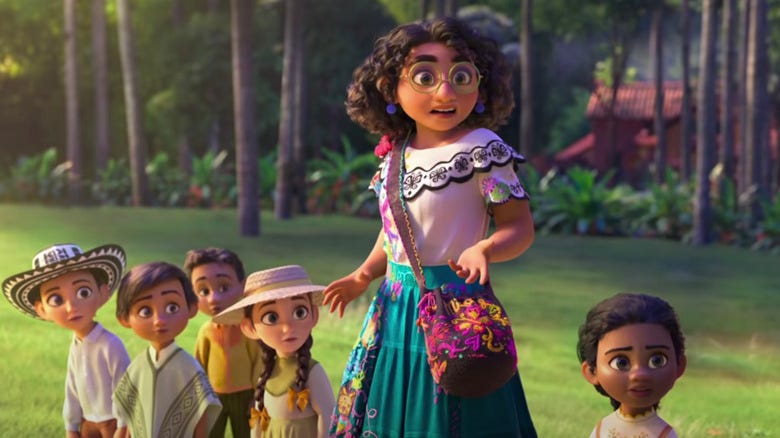Exploring Encanto's Lessons on Generational Trauma and Healing
Written on
Chapter 1: Understanding Generational Trauma Through Encanto
In the realm of animated films, Encanto stands out as a profound narrative that delves into the intricacies of familial relationships and the impact of generational trauma. Unlike typical Disney fare, this movie engages viewers on a deeper emotional level, prompting reflections on personal experiences and familial connections.

The story centers around Mirabel, who faces a tumultuous journey marked by her struggle for acceptance. Her feelings of inadequacy resonate strongly, rooted in the toxic dynamics often found in families.
Section 1.1: Trauma and Mirabel's Quest for Acceptance
Mirabel's upbringing in her cherished Casita is marred by negative influences—distant grandparents, self-centered sisters, and emotionally unavailable parents. The scapegoating of her brother Bruno only amplifies the dysfunction, illustrating how trauma can manifest in a family setting.
The moment when her grandmother expresses disappointment after Mirabel fails to receive a magical gift serves as a pivotal point, launching her into a relentless pursuit of validation. This experience raises an essential question: Can you relate to her struggles?
Subsection 1.1.1: The Role of Bruno in Family Dynamics
As Mirabel's journey unfolds, she encounters Bruno, a character emblematic of the family outcast. Bruno's experience of being vilified for speaking the truth reflects the often-silenced voices within dysfunctional families.
His song “We Don’t Talk About Bruno” encapsulates the theme of repression disguised as lightheartedness, highlighting the challenges of open communication and the potential for further trauma to emerge. Bruno's escalating turmoil illustrates the lasting effects of familial estrangement.
Section 1.2: The Complexity of Abuela's Trauma
It’s tempting to attribute the family's issues solely to Abuela's actions. However, her own trauma—stemming from witnessing her husband's death—plays a crucial role in her behavior. Her struggle with grief and the fear of losing her family again leads her to exert control over Mirabel, often misinterpreted as mere harshness.
The adage “hurt people hurt people” rings true here, as Abuela's need for protection manifests in ways that ultimately harm her loved ones. This highlights the importance of recognizing our trauma responses, which can take various forms—whether it’s laughter in inappropriate situations or emotional outbursts.
Chapter 2: Recognizing and Addressing Trauma
Understanding our own trauma responses is crucial for healing. By recognizing the origins of our behaviors, we can reclaim our power and alter our reactions to triggering situations.
Generational Trauma in Movies | Encanto explores how these themes resonate in the film, illustrating the cycle of trauma that can span generations.
Encanto & Recovering from Generational Trauma delves deeper into the healing journey, emphasizing the importance of self-awareness and communication.
Reflecting on Abuela's emotional responses and their impact on the family can guide us in examining our own behaviors. By taking responsibility for our actions, we can foster healing and enhance our connections with others.
In the end, we all possess the capacity to hurt those we care about, but we also have the potential to initiate healing. By confronting our buried traumas, we can pave the way for future generations to thrive free from the weight of past pains.
Wishing you a journey of healing, A x